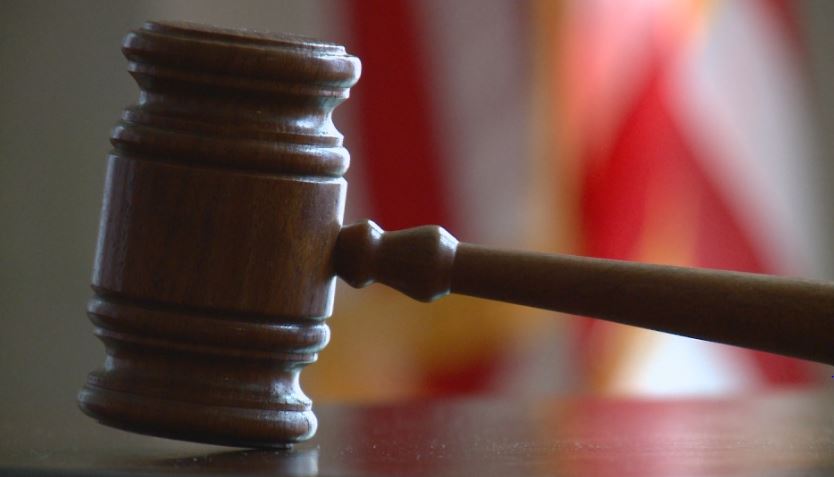TAMPA, Fla. (WFLA) — While the Florida Supreme Court remains in the process of weighing how Florida’s law protecting the privacy of crime victims applies to law enforcement officers in the line of duty, a Sarasota judge has ruled in favor of the press. The Sarasota County Sheriff sued the Sarasota Herald-Tribune over their release of the deputies’ names, which they received from the the state attorney’s office by mistake, according to the paper’s reporting on the legal case.
Turn it down: Florida law lets officers ticket for loud music from cars Judge Charles Williams, 12th Circuit, ruled in favor of the Sarasota Herald-Tribune on First Amendment grounds, saying the law does not block them from publishing the names of deputies involved in the death of county man Jeremiah Evans. Deputies shot Evans, killing him, as he approached them with a knife, according to previous reporting, citing SCSO. While the eviction, and subsequent use of force, are the origin of the case, the true issue central to Judge Williams’ ruling is Marsy’s Law.
Passed in 2018, Marsy’s Law was approved by voters as a ballot measure, Amendment 6. It took effect in 2019. Shortly after, application of the law became a source of confusion in the state.
Some law enforcement agencies began protecting the identities of not just victims of crimes, but the officers who responded to them. Due to what has been described as ambiguous wording, some law enforcement advocates have argued that by responding to criminal activity, officers themselves may be considered victims. Marsy’s Law in Florida: Are police victims? This is of particular relevance in the cases of officer-involved shootings, such as the death of Evans in Sarasota County.
It’s also a question that Florida’s Supreme Court is working on answering, with a current case in the state’s highest court still in progress. While law enforcement leaders themselves remain divided on the topic, Judge Williams ruled in favor of the Herald-Tribune for the Sarasota case. Williams wrote in his latest ruling that while protecting the privacy and safety of victims was “highly significant,” referencing U.
S. Supreme Court case The Florida Star v. B.
J. F, such concern “did not outweigh the newspaper’s First Amendment right to publish truthful information about a matter of public concern that was not obtained through the newspaper’s unlawful conduct. ” Due to the initial identification of deputies’ last names being provided by the state, even in error, Williams ruled in favor of the newspaper’s right to publish the information, which was not obtained through criminal or illegal activity by the publication.
Williams ruled “the course of the deputies’ service of a writ of possession is unquestionably a matter of public concern,” where SCSO was sent to evict Evans from a residence he had not leased and was “squatting in” according to officials, the apartment in question belonged to a deceased tenant. 146 new Florida laws take effect July 1 When three SCSO deputies arrived at the apartment to remove Evans, he “lunged forward” with a knife. Deputies reportedly attempted to use a taser to subdue him, to no effect.
One of the deputies then shot Evans, killing him. The Herald-Tribune identified the deputies after receiving public records responses from the 12th Circuit State Attorney’s Office. After digging into the information, according to the Herald-Tribune’s reporting, they identified the deputies.
Then Sarasota Sheriff Kurt Hoffman sued to prevent further identification efforts. Previous steps in the legal process enjoined a block on the names being used in publications. With Williams’ ruling on Monday, the decision is currently reversed, allowing the names to be public.
In response, the Sarasota Sheriff released a statement, saying that he “greatly respects” the judge, and promising to “abide by his ruling,” despite his belief on the application of Marsy’s Law. Will Supreme Court abortion ruling affect maternal health in Florida? “While I have my personal opinion about the application of Marsy’s Law to law enforcement officers who are victims of crime, we believed, based on the plain reading, that we needed to proceed forward and get this issue resolved,” Hoffman’s statement read. “The issue has now been resolved in this circuit.
” Hoffman said that now, SCSO awaits a decision in the Florida Supreme Court, or legislative action, to bring the debate over how to abide by Marsy’s Law to an end. .
From: wfla
URL: https://www.wfla.com/news/sarasota-county/sarasota-judge-rules-for-florida-newspaper-in-marsys-law-case/



